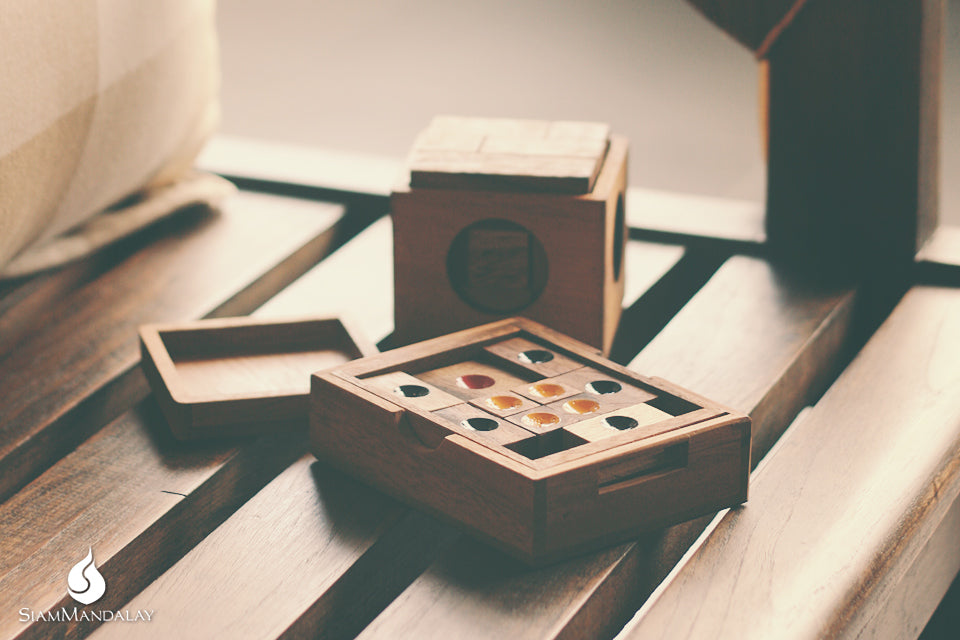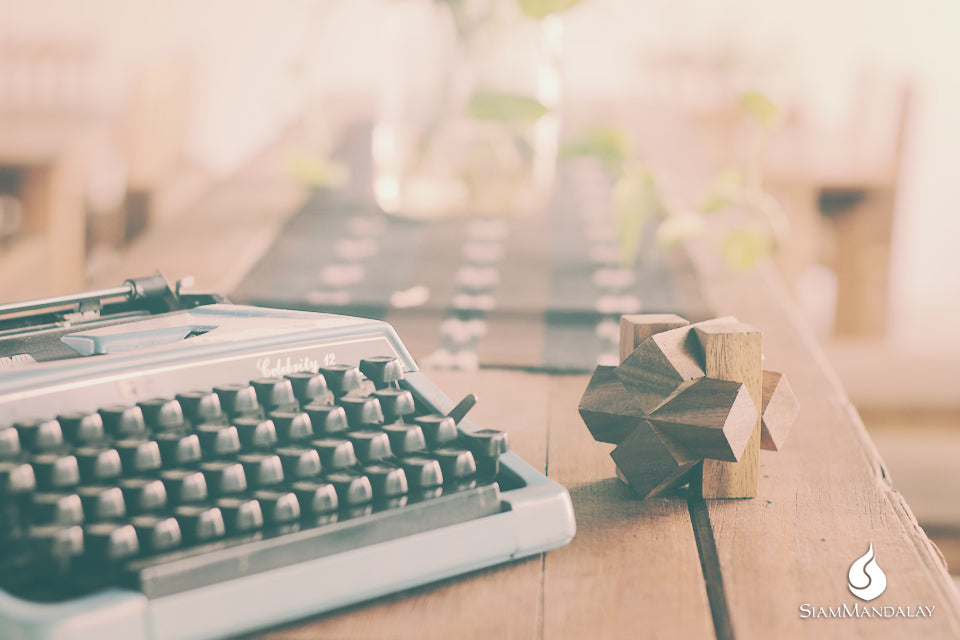
At SiamMandalay we like to stay ahead of the curve when it comes to all things puzzles.
Our in-house boffins did some research and pulled together a list of why you need to get puzzles into your life.
Here is the skinny on the super-secret top 10:
1. Improved memory: This one is probably not so secret - Remembering steps, moves and strategies that advance your puzzling and developing them further. Puzzles are usually completed through gradual iteration - often requiring a complex system of moves. You'll need to remember them all.

2. Improved logical thinking: Hypothesizing and acting upon rational moves. Your logical reasoning will improve the more puzzles you practice with.
Organize your strategies thoughtfully and apply them – most types of puzzles have a central strategy or thinking style, these can be applied to other exams, games and tests.
3. Obtaining Feedback: Planning and making choices followed by receiving feedback on your choices, both positive and negative. Base your future decisions on this feedback and you're on to a winner.

4. Goal Setting: Move-by-move you are constantly evaluating what you need to do to go forward. Nobody likes a half-finished puzzle, so you are encouraged to drive on and see it through.
Puzzles also present ever increasing challenges, going from small and basic to highly complex, so you can always move up or down the ladder.

5. Patience and Perseverance: You know you are in for the long haul, but you keep working towards your goal. Puzzles offer a positive feedback loop, when you make progress, you get the "aha moment" which reaffirms your pursuit. Keep going till the end, the rewards are there.

6. Problem Solving: Solving puzzles is in essence finding the solution to a problem. By working on puzzles, you can train your brain to look for complex solutions and think creatively. You can take these skills and apply them across your work and personal life - we all need problem solvers.

7. Prioritizing: Working in a sequence, evaluating the situation and seeing what needs to be done first. The better you get at evaluating, segmenting and prioritizing the more efficient you will be with your time. Eliminating elements and grouping elements together to make the whole process, more efficient. It's fantastic practice for work and play.
8. Spatial Orientation: This one is a biggie; it’s used in virtually every math-based job and is not taught in schools. It’s the ability to think about a three-dimensional object in your mind and rotate it - making moves in your head before actively doing them.
9. Sharing Behavior: Puzzles and games are cross generational, which is one of their beauties. They can create powerful bonds between people and shows the benefits of good team work when people work towards a common goal.

10. Gross & Fine Motor Skills: Most notably motor skills and hand-eye co-ordination can be practiced. This is typically through block games (like Jenga) and jigsaws. Careful placing of pieces is useful for fine motor skills which helps with clear handwriting and diligent finger work in instrument playing.

Share some time with your family and friends playing puzzles and games.
